“Does my baby have a cow’s milk protein allergy?” Not the question you expected to be asking when you thought about life with your new bundle of joy. But for you, this question is a reality, because your baby is struggling and you need to find out why.
Reassuringly for you and your baby, cow’s milk protein allergy is a fairly common problem in the world of a paediatric dietitian, and it can be treated with the correct care and advice. Now, as a parent although distressing at the time, it is reassuring for you that we are used to seeing babies and children with cow’s milk protein allergy.
Why does milk cause an allergy?
Cow’s milk is widely drank by people all over the world. For most people it is safe to drink. However, some babies, children and adults are allergic to milk, and this is when we find the problems. Babies are first exposed to cow’s milk proteins through breast milk from a mother’s diet, or through infant formula, and when babies with a milk allergy drink this it triggers an immune response.
The immune response to the allergen can be immediate within 30 minutes to 2 hours (IgE), or delayed after several hours or even days (non IgE) to recognise symptoms.
What are the symptoms of cow’s milk protein allergy?
Symptoms of CMPA include:
Eczema/ rash/ hives
Swelling
Asthma/ breathing issues
Itchy/ runny nose
Vomiting/ reflux
Constipation/diarrhoea
Poor growth
Unsettled behaviour
Abdominal pain
Anaphylaxis in rare cases
What should I do if i think my baby is allergic to milk?
If your baby or child is showing signs of cow’s milk protein allergy, it is important that you seek help from a qualified health professional.
If an IgE allergy is suspected you should be referred to a paediatrician. Blood tests and skin prick tests can be useful diagnostic tools, however can be distressing and unreliable in babies, and therefore diagnosis is often based on a good clinical history and symptoms.
There are many other allergy tests on the market, many available online, but they are not recommended by doctors or dietitians as there is none or limited evidence for their use. Always speak to a registered medical professional if you suspect your child has an allergy.
Non IgE allergies are usually diagnosed by taking a good clinical history, an allergy exclusion diet and reintroduction challenge. If your baby / child reacts once the allergen is reintroduced you will need to continue a milk free diet, but should be supported to do this to ensure adequate growth and nutrients for development.
Who can help me with my baby’s cow’s milk protein allergy?
All suspected cow’s milk protein allergies should be referred to a paediatric dietitian. Most paediatric dietitians will be able to support you to with CMPA. Often NHS appointments are delayed or unavailable, so this can increase the difficulties and length of time of an allergy. This is where I can support you, get you booked in quickly and set up with the correct treatment plan. Visit my contact page to get in touch.
If your baby or child has a milk allergy, it is likely you will be advised to avoid milk completely, and your dietitian can support you to do this. Advice will include avoiding all foods containing milk including baked foods, so checking labels is important. All food labels in the UK should have allergens displayed in bold or italic so it is easier to spot in the ingredients list. Goat’s and sheep’s milk should also be avoided as the proteins are very similar to cow’s milk, and likely to result in the same immune response.
Milk and milk traces should be avoided unless your dietitian tells you otherwise.
Is cow’s milk protein allergy the same as lactose intolerance?
The simple answer is no. Cow’s milk protein allergy is a reaction to the proteins in milk (casein and whey), whereas lactose intolerance is a problem with breaking down the sugars (lactose) in milk. In rare cases this can be caused by a genetic issue causing lactase deficiency, but more often lactose intolerance is a short term problem following gastroenteritis (tummy bug).
What about weaning?
If your child has a cow’s milk protein allergy you will likely need to give your child a milk free weaning diet. To do this safely you should seek dietetic support. Milk contains some key nutrients for growth and development. These include protein, fat, calcium and iodine. Therefore, you need to make sure that you are giving alternatives that provide these nutrients. You can find more information on alternatives here.
If your child has a cow’s milk protein allergy this doesn’t mean you have to avoid any other allergens. You only need to avoid other allergens if your child is allergic to them. There is a slightly higher risk of allergy to other allergens if your child has cow’s milk protein allergy. Again your dietitian can support you to introduce these safely into the diet.
How do I get help for my baby’s cow’s milk protein allergy?
We know it is important to be able to access a registered dietitian to treat CMPA. But, we also know that NHS waiting lists can be long. The earlier a cow’s milk allergy is diagnosed and treated, the better the outcome. Not only for baby, but on the whole family, as it can be extremely distressing.
Seeing a private registered dietitian is often a much quicker option to getting the support you need. If you would like to find out more, or discuss private appointment options, get in touch via my contact page.
For more information on accessing NHS services you should speak to your GP. Or visit the NHS website for further details about cow’s milk protein allergy.

